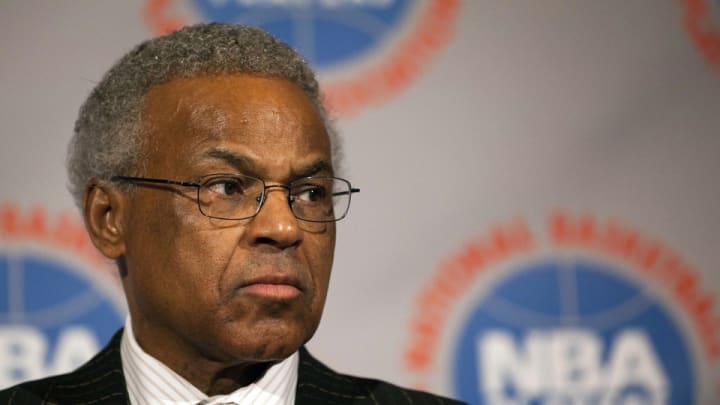Court rejects NBPA appeal in Billy Hunter breach of contract lawsuit

An appeals courts threw out the National Basketball Players Association's appeal in former executive director Billy Hunter's lawsuit against the NBPA on Monday, sending the case back down to a Los Angeles Superior Court.
In a ruling obtained by CBS Sports, the California Court of Appeal, Second Appellate District disagreed with the lower court’s reasoning for allowing the lawsuit to continue.
"Hunter's disagreement with the NBPA is not protected activity," the appeals court said. "It is a garden-variety contract dispute."
Hunter originally sued the NBPA and former NBPA president Derek Fisher for breach of contract, saying he is owed more than $10.5 million in salary and benefits after he felt that the union tried to undermine his authority during the league’s 2011 lockout, and then conspired to have him fired after a new Collective Bargaining Agreement was completed. A judge later dismissed most of the claims against Fisher.
"As I have said in my lawsuit all along, the union's termination of my contract was unlawful. The Court of Appeal's decision brings me one step closer to proving that fact,” Hunter told CBS Sports.
The Los Angeles Superior Court ruled in January 2014 that the NBPA were well within their rights to fire Hunter, which allowed Hunter to later clarify the lawsuit stating he should receive the rest of the compensation in his contract. His contract was extended in 2010 and was approved by the union and signed off on by Fisher, but was not valid because the players never ratified it, a stance that Hunter disagrees with.
After the labor dispute continued, the union hired attorney Ted Wells, who conducted investigations in the NFL’s bullying and Deflategate scandals, to look into Hunter’s activities as NBPA executive director.
A nine-month investigation, which accused Hunter of nepotism, conflicts of interest and misuse of funds, determined that Hunter’s actions “were inconsistent with his fiduciary obligations to put the interests of the Union above his personal interests" but said he did not engage in criminal acts, which involved the embezzlement or theft of union funds.
The review said that Hunter was paid $1.3 million in unused vacation time without it being reviewed and failed to properly manage conflicts of interest.
Hunter was fired during the 2013 All-Star Break, which led to him suing the union and Fisher months later.
- Scooby Axson
